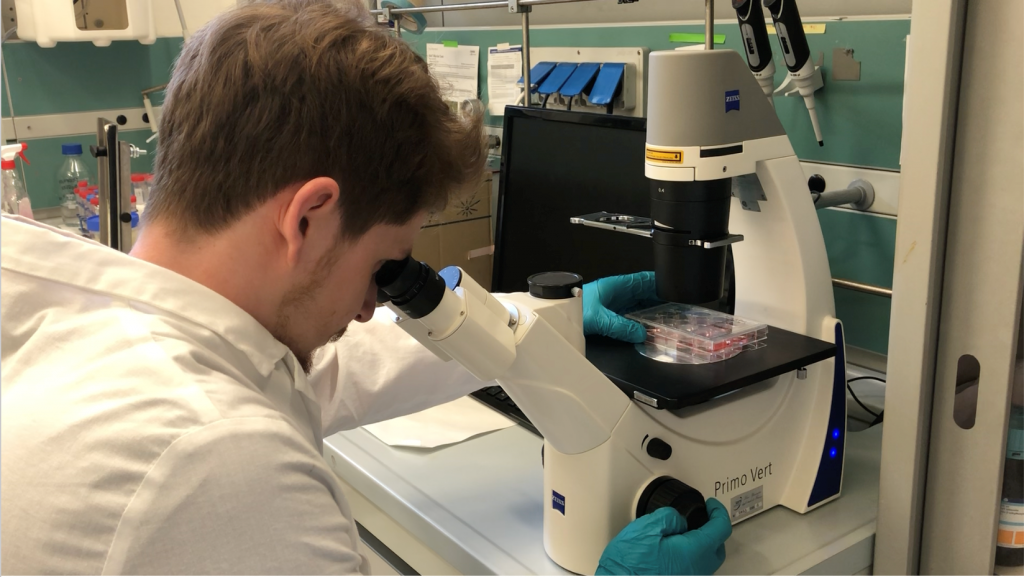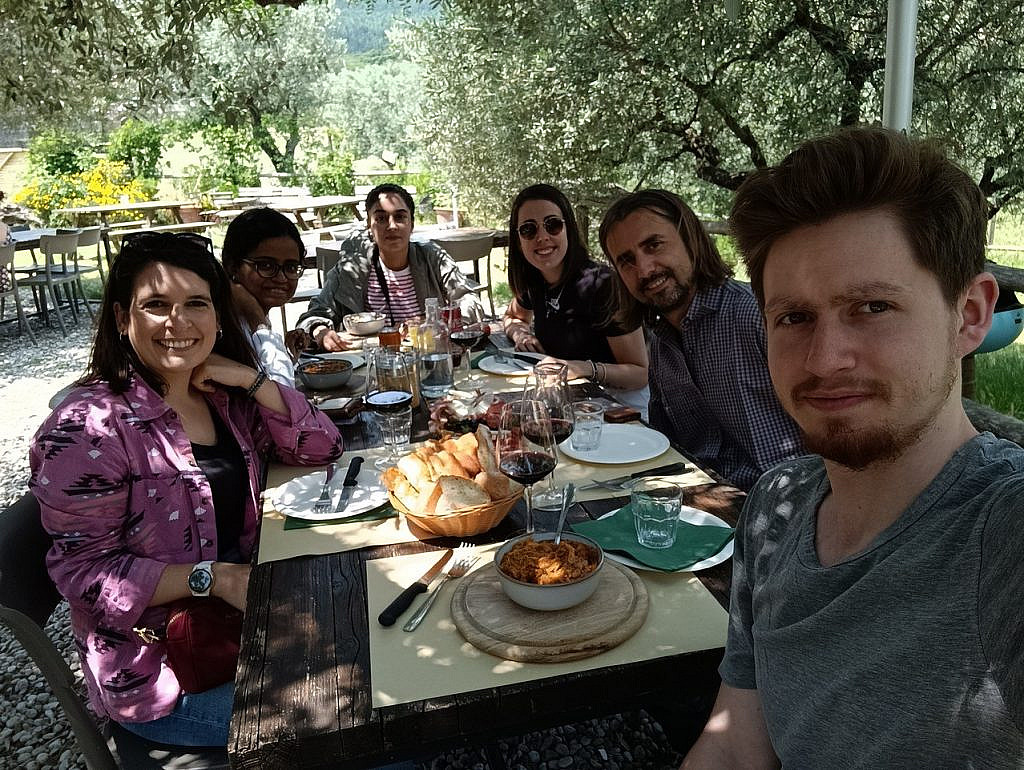Hello, my name is Alexander Röntgen (ESR12) and I am a PhD student at the University of Cambridge, UK, working in the laboratory of Prof. Michele Vendruscolo at the Centre for Misfolding Diseases, Yusuf Hamied Department of Chemistry. As part of our project in the Bio2Brain network, we aim to develop single-domain antibodies, also known as nanobodies, that target two proteins involved in the pathogenesis of multiple sclerosis (MS) – Nogo-A and LINGO-1. The goal for these nanobodies is to bind and inactivate the function of these proteins. For this, we need to test the binding of our nanobodies, either with purified target proteins or in cells expressing these target proteins.
A central aspect of our consortium is the interdisciplinary collaboration and training, allowing us to spend time in different laboratories across Europe. Hence, together with my colleagues Vaidehi Roy Chowdhury (ESR11) and Dalia Abdeldaim (ESR4), I had the chance to conduct a secondment at our partner institution Laboratorio Europeo Di Spettroscopie Non Lineari (LENS) in Florence, Italy, from 22nd May-2nd June 2023 under the supervision of Dr. Martino Calamai.
Working with Marta Rojas Rodríguez (ESR7), we employed a range of techniques, including transfection of mammalian cells, assessment of protein expression by confocal microscopy, fixation and staining of cells and use of a molecular tracking system. Thanks to the expertise available at LENS both in optical imaging techniques and cell culture, we were able to express LINGO-1 in neuroblastoma cells and verify its cellular localisation. This type of measurements will be important for further on‑cell studies with the nanobodies we develop. Moreover, we were introduced to the setup of a light-sheet microscope that was built at LENS for tissue imaging. Furthermore, we had the opportunity to liaise with students from other research groups at LENS and learn about the optical techniques they employ.
Besides the productive learning experience at LENS, we were able to make use of the time to explore the historical city of Florence and further connect with the other ESRs in the Bio2Brain network. I believe that the secondments which form part of the Bio2Brain network are a great opportunity to expand one’s own horizon and skill set and immerse in the scientific environment of other European laboratories. I would especially like to thank Dr. Martino Calamai and Marta Rojas Rodríguez for the very welcoming atmosphere, their continuous support and the productive time in the laboratory as well as Prof. Michele Vendruscolo and the Bio2Brain network for supporting this secondment. I am looking forward to more collaboration and further exchanges within the consortium.

